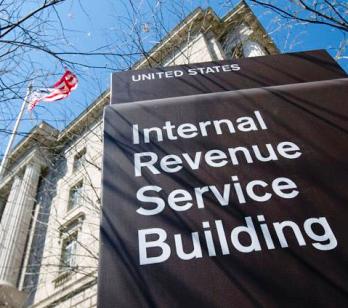To understand the root cause of the scandal at the Internal Revenue Service, context is important.
With the Supreme Court’s 2010 decision in Citizens United v. the Federal Election Commission, corporations and non-profits were permitted to contribute to political campaigns. In the case of certain non-profits, they could donate provided they did not contribute more than 49 percent of their budget. Thus, began an avalanche of non-profits with names like: Americans for Prosperity, Crossroads GPS, Citizens for Strength and Security Fund, and American Future Fund. (Can you tell from the name which are conservative and which are liberal?)

According to OpenSecrets.org, “501(c) Groups — Nonprofit, tax-exempt groups organized under section 501(c) of the Internal Revenue Code that can engage in varying amounts of political activity, depending on the type of group. For example, 501(c)(3) groups operate for religious, charitable, scientific or educational purposes. These groups are not supposed to engage in any political activities, though some voter registration activities are permitted. 501(c)(4) groups are commonly called ‘social welfare’ organizations that may engage in political activities, as long as these activities do not become their primary purpose. Similar restrictions apply to Section 501(c)(5) labor and agricultural groups, and to Section 501(c)(6) business leagues, chambers of commerce, real estate boards and boards of trade.”
(You got that? I had to re-read this several times, and I’m still not clear on the precise meaning.)
So, when a 501(C) wishes to apply for tax-exempt status, it is the job of the IRS to thoroughly to determine if they are legitimate and not just masking as a non-profit in order to hide donors names and amounts of money given for campaign purposes, known as “dark money.”
The first reports that the IRS may have been involved in targeting certain conservative groups for closer scrutiny, ultimately leading to longer registration times, occurred in February 2012 on conservative talking head Glenn Beck’s The Blaze. The New York Times reported on the issue on March 6, 2012.
“In recent weeks,” the Times wrote, “the I.R.S. has sent dozens of detailed questionnaires to Tea Party organizations applying for nonprofit tax status, demanding to know their political leanings and activities. The agency plans this year to press existing nonprofits like American Crossroads, on the Republican side, and Priorities USA, on the Democratic side, to justify their tax-protected status as ‘social welfare’ organizations, a status that many tax professionals believe is being badly abused.”
Senate Democrat Michael Bennet complained that “The shadowy attack ads we see every day should be brought into the light. The largest contributors should stand by the ads they’ve paid for, the voters should know who’s behind these ads, and these super PACs should not be allowed to abuse our tax code by masquerading as nonprofit charities.”
And he’s right.
However, the Times points to “Jay Sekulow, a conservative lawyer known more for his stands on religious freedom than for his tax work [said] ‘This is obviously a coordinated effort by the I.R.S. to stifle these Tea Party and Tea Party-affiliated groups, and to stifle free speech activities. It’s as onerous as what they did to the N.A.A.C.P. in the 1950s, and I plan to make that point.’ ”
Before Citizens United, the IRS never had to deal with this issue. So, the definitions are fuzzy, at best. ” ‘To be tax-exempt as a social welfare organization described in Internal Revenue Code (IRC) section 501(c)(4), an organization must be primarily engaged in the promotion of social welfare,’ I.R.S. officials said in a statement e-mailed in response to inquiries about the I.R.S.’s activities. ‘The promotion of social welfare does not include any unrelated business activities or intervention in political campaigns on behalf of or in opposition to any candidate for public office.’
“But, the service added, such organizations can engage in some political activity ‘so long as, in the aggregate, these nonexempt activities are not its primary activities.’ Nobody is quite sure how that is measured.
” ‘This is really the last loophole,’ said James P. Joseph, a tax lawyer in Washington at Arnold & Porter, and it has made way for a profusion of political activities and questionable tax issues.”
So, how did we get from this mess to a bigger mess with Lois Lerner, the head of the IRS’s division on tax-exempt organizations?
That’s next.
Comments










